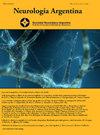Sesgos en neuroepidemiología: consecuencias y recomendaciones
Q4 Medicine
引用次数: 0
Abstract
Neuroepidemiology is a scientific discipline focused on studying the distribution, frequency, risk factors, and determinants of neurological diseases in human populations. The primary aim of this publication is to emphasize the importance of preventing or minimizing common biases in neuroepidemiology and to propose strategies for enhancing the validity and reliability of studies.
The most prevalent biases include selection bias, which typically occurs in studies focused on restricted populations; information bias, arising from errors in the measurement and definition of variables; and confounding bias, caused by external variables that distort cause-effect relationships.
Other notable biases include nonresponse bias, which distorts results when certain groups do not respond to questionnaires or are unavailable; sampling errors, which affect population representativeness; and attrition bias in longitudinal studies, which affects findings by excluding participants with higher severity. In older populations, comorbidities, and cognitive decline complicate diagnoses, leading to biases related to concurrent illnesses and memory disorders.
Access to reliable data, such as death certificates, faces administrative and technical limitations, influencing the accuracy of mortality information. Conducting pilot studies, designing cultural and linguistically adapted questionnaires, including representative populations, and involving experts in biostatistics are key strategies for minimizing these biases.
神经流行病学的偏见:后果和建议
神经流行病学是一门专注于研究人群中神经疾病的分布、频率、危险因素和决定因素的科学学科。本出版物的主要目的是强调预防或减少神经流行病学中常见偏差的重要性,并提出提高研究有效性和可靠性的策略。最普遍的偏差包括选择偏差,这通常发生在关注有限人群的研究中;信息偏差,由变量的测量和定义错误引起;以及由扭曲因果关系的外部变量引起的混淆性偏差。其他值得注意的偏差包括无反应偏差,当某些群体不回答问卷或无法获得问卷时,这种偏差会扭曲结果;影响总体代表性的抽样误差;纵向研究中的损耗偏差,通过排除严重程度较高的参与者来影响研究结果。在老年人群中,合并症和认知能力下降使诊断复杂化,导致与并发疾病和记忆障碍相关的偏见。获得可靠数据,如死亡证明,面临行政和技术上的限制,影响了死亡率信息的准确性。开展试点研究,设计符合文化和语言的问卷,包括具有代表性的人群,以及让生物统计学专家参与,是减少这些偏见的关键策略。
本文章由计算机程序翻译,如有差异,请以英文原文为准。
求助全文
约1分钟内获得全文
求助全文
来源期刊

Neurologia Argentina
Medicine-Neurology (clinical)
CiteScore
0.50
自引率
0.00%
发文量
34
期刊介绍:
Neurología Argentina es la publicación oficial de la Sociedad Neurológica Argentina. Todos los artículos, publicados en español, son sometidos a un proceso de revisión sobre ciego por pares con la finalidad de ofrecer información original, relevante y de alta calidad que abarca todos los aspectos de la Neurología y la Neurociencia.
 求助内容:
求助内容: 应助结果提醒方式:
应助结果提醒方式:


